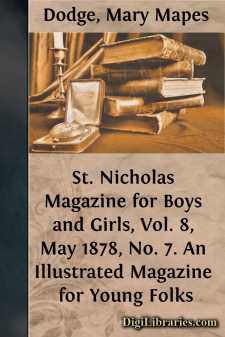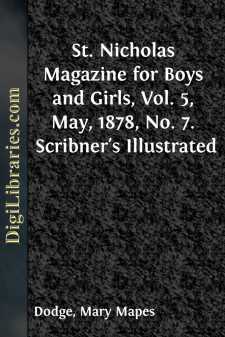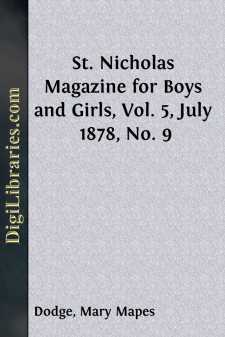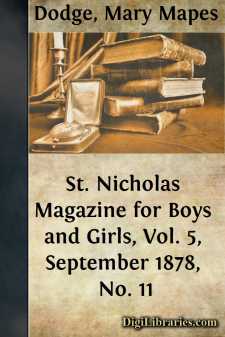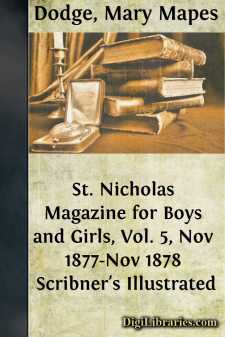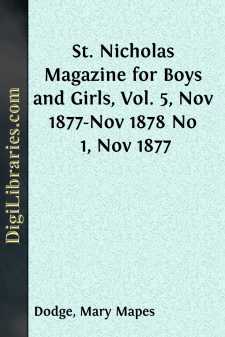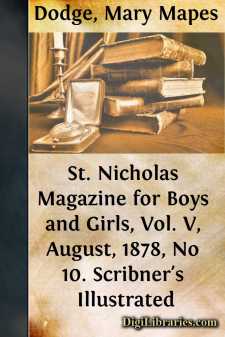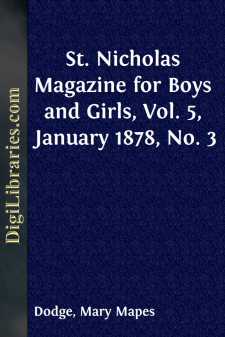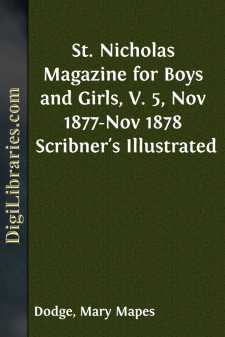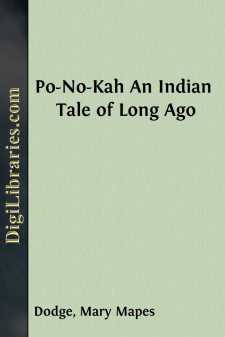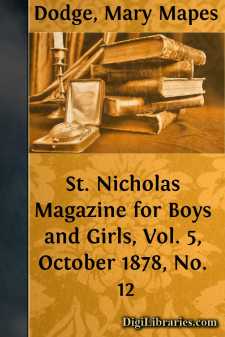Categories
- Antiques & Collectibles 13
- Architecture 36
- Art 48
- Bibles 22
- Biography & Autobiography 813
- Body, Mind & Spirit 142
- Business & Economics 28
- Children's Books 17
- Children's Fiction 14
- Computers 4
- Cooking 94
- Crafts & Hobbies 4
- Drama 346
- Education 46
- Family & Relationships 57
- Fiction 11829
- Games 19
- Gardening 17
- Health & Fitness 34
- History 1377
- House & Home 1
- Humor 147
- Juvenile Fiction 1873
- Juvenile Nonfiction 202
- Language Arts & Disciplines 88
- Law 16
- Literary Collections 686
- Literary Criticism 179
- Mathematics 13
- Medical 41
- Music 40
- Nature 179
- Non-Classifiable 1768
- Performing Arts 7
- Periodicals 1453
- Philosophy 64
- Photography 2
- Poetry 896
- Political Science 203
- Psychology 42
- Reference 154
- Religion 513
- Science 126
- Self-Help 84
- Social Science 81
- Sports & Recreation 34
- Study Aids 3
- Technology & Engineering 59
- Transportation 23
- Travel 463
- True Crime 29
St. Nicholas Magazine for Boys and Girls, Vol. 8, May 1878, No. 7. An Illustrated Magazine for Young Folks
by: Mary Mapes Dodge
Categories:
Description:
Excerpt
On Henley street, in quiet Stratford town, there stands an old half-timbered house. The panels between the dark beams are of soft-colored yellow plaster. The windows are filled with little diamond panes; and in one of the upper rooms they are guarded with fine wire outside the old glass, which is misty with innumerable names scratched all over it. Poets and princes, wise men and foolish, have scrawled their names after a silly fashion, on windows, wall, and ceiling of that oak-floored room, because, on the 22d of April, 1564, a baby was born there—the son of John and Mary Shakspere. And on the following Wednesday, April 26, the baby was carried down to the old church beside the sleepy Avon and baptized by the name of William.
Little did John Shakspere and the gossips dream, when the baby William's name was duly inscribed in the register-book with its corners and clasps of embossed brass, that he was destined to become England's greatest poet. Little did they dream, honest folk, that the old market town and the house on Henley street and the meadows across the river, covered in that pleasant April month with cowslips and daisies and "lady-smocks all silver-white," would become sacred ground to hundreds of thousands of people from all quarters of the globe, who should come, year by year, on reverent pilgrimage to Shakspere's birthplace.
The baby grew up as most babies do; and when he was two and a half years old, a little brother Gilbert was born. As we walk through the streets to-day, we can fancy the little lads toddling about the town together, while father John was minding his glove and wool trade at the old house. John Shakspere, in those early days, was a well-to-do man. He was a chamberlain of the borough when little Gilbert was born; and in 1568 he was elected High Bailiff, or Mayor, of Stratford, although he, in common with many of his fellow-burgesses, could not write his own name. He had land, too, at Snitterfield, where his father had lived; and his wife, Mary Arden, was the owner of Ashbies, the farm at Wilmcote, hard by.
MARY ARDEN'S HOUSE AT WILMCOTE.But, though the parents were illiterate, they knew the value of a good education. The Free Grammar School had been refounded a few years before by Edward VI. And although there is no actual record of his school days, we may take it as certain that little Will Shakspere was sent to the Free School when about seven years old, as we know his brother Gilbert was, a little later. The old Grammar School still stands; and boys still learn their lessons in the self-same room with the high pitched roof and oaken beams, where little Will Shakspere studied his "A, B, C-book," and got his earliest notions of Latin. But during part of Shakspere's school days the schoolroom was under repair; and boys and master—Walter Roche by name—migrated for a while to the Guild Chapel next door. And this was surely in the poet's mind when, in later years, he talked of a "pedant who keeps a school i' the church."
All boys learned their Latin then from two well-known books—the "Accidence" and the "Sententiæ Pueriles." And that William was no exception to the rule we may see by translations from the latter in several of his plays, and by an account, in one of his plays, of Master Page's examination in the "Accidence." An old desk which came from the Grammar School and stood there in Shakspere's time is shown at the birthplace. And when we look at it we wonder what sort of a boy little William was—whether his future greatness made a mark in any way during his school days; whether that conical forehead of his stood him in good stead as he learned his Latin Grammar; whether he was quiet and studious, or merry and mischievous; whether he hid dormice and apples and birds' eggs in his desk, and peeped at them during school hours; whether he got into scrapes and was whipped....


